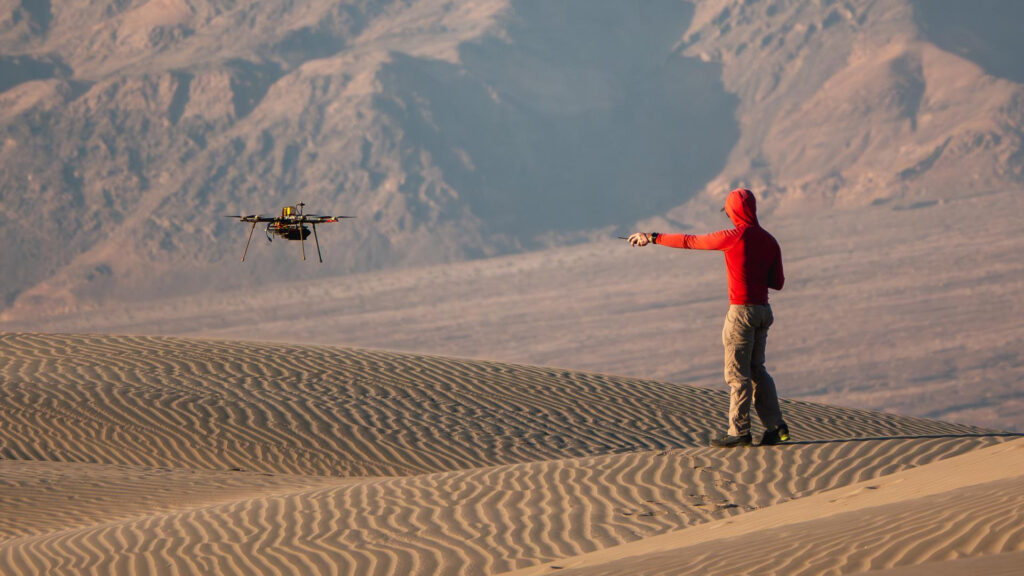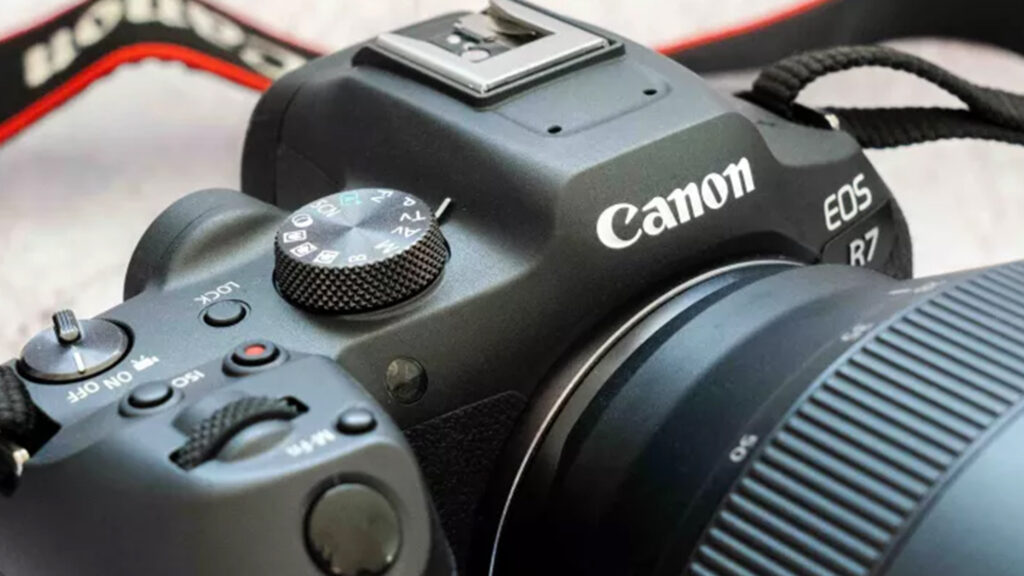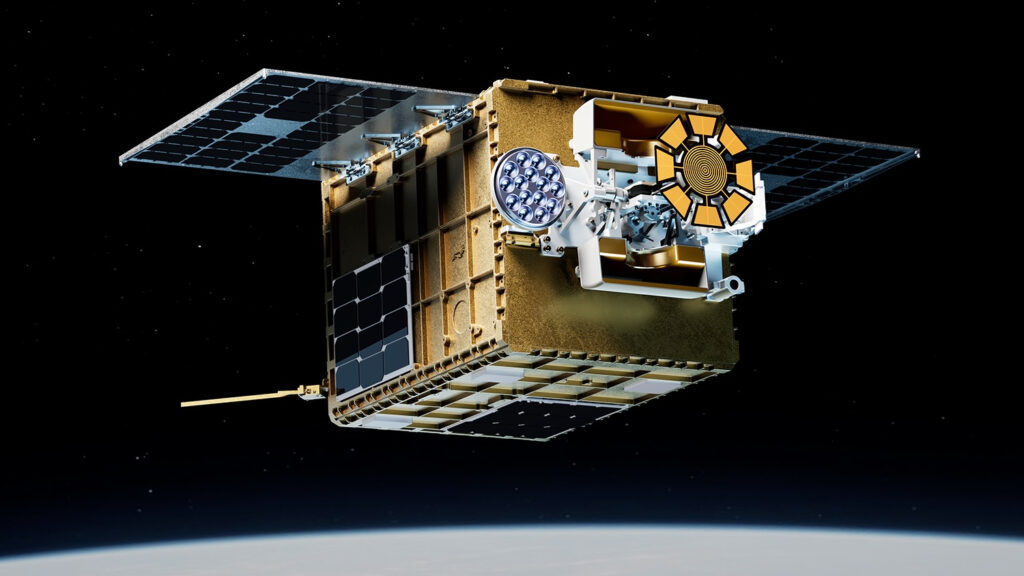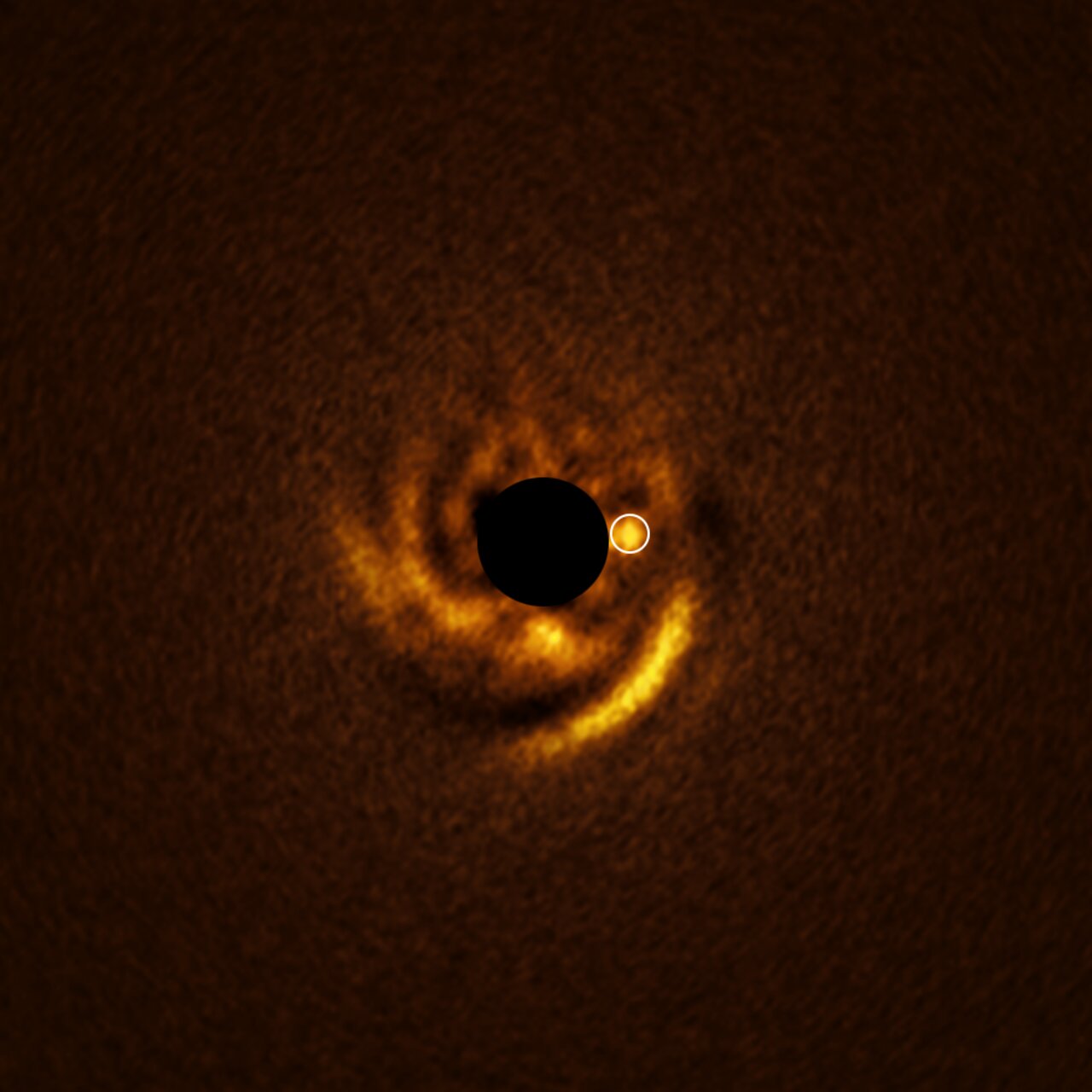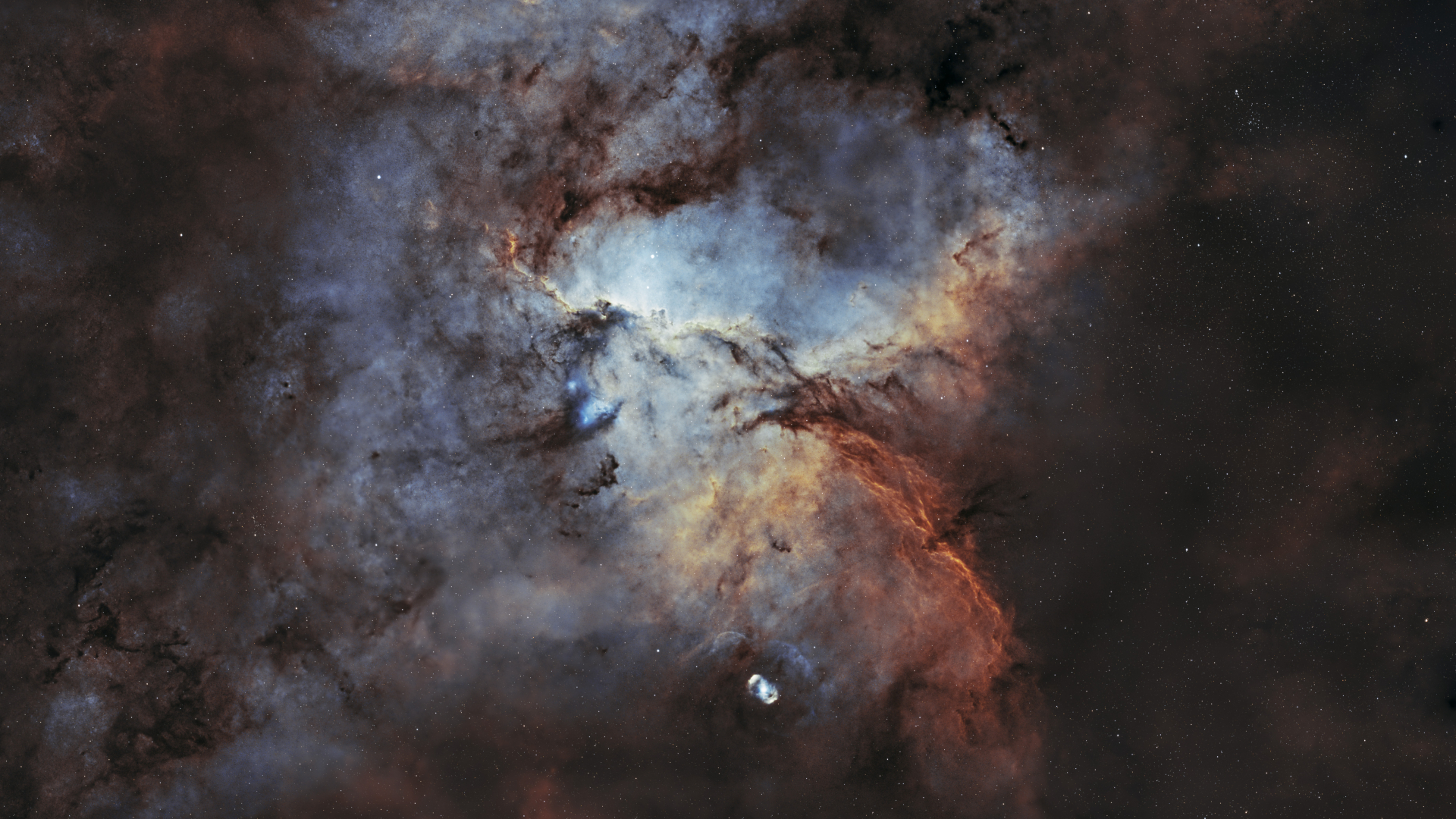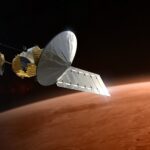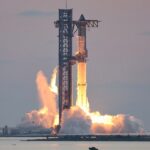Now Reading: Astronauts collect blood aboard the ISS | Space photo of the day for July 21, 2025
-
01
Astronauts collect blood aboard the ISS | Space photo of the day for July 21, 2025
Astronauts collect blood aboard the ISS | Space photo of the day for July 21, 2025
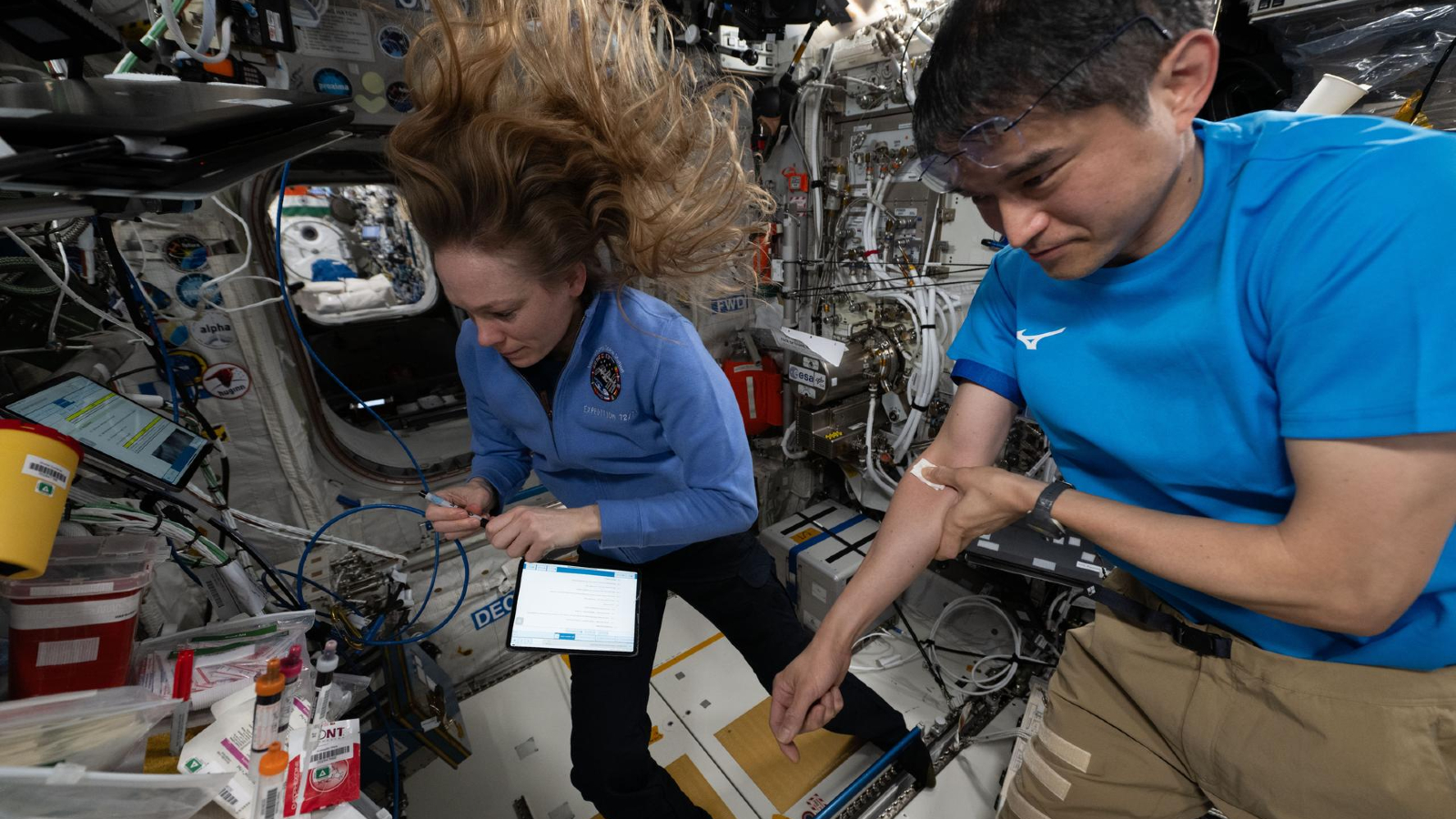
Aboard the International Space Station, astronauts work to study how the microgravity atmosphere affects human health, such as muscle development and bone structure.
What is it?
As part of a project to look at how microgravity affects cellular health, ISS Commander Takuya Onishi of JAXA (Japan Aerospace Exploration Agency) and NASA Expedition 73 Flight Engineer Nichole Ayers collect blood samples from the astronauts on the space station.
Given that gravity is almost nonexistent on the ISS, it can make things like blood collection somewhat challenging, as things float away or have to be tied down.
Where is it?
This photo was taken aboard the ISS, around 250 miles (402 km) from Earth in low-Earth orbit.
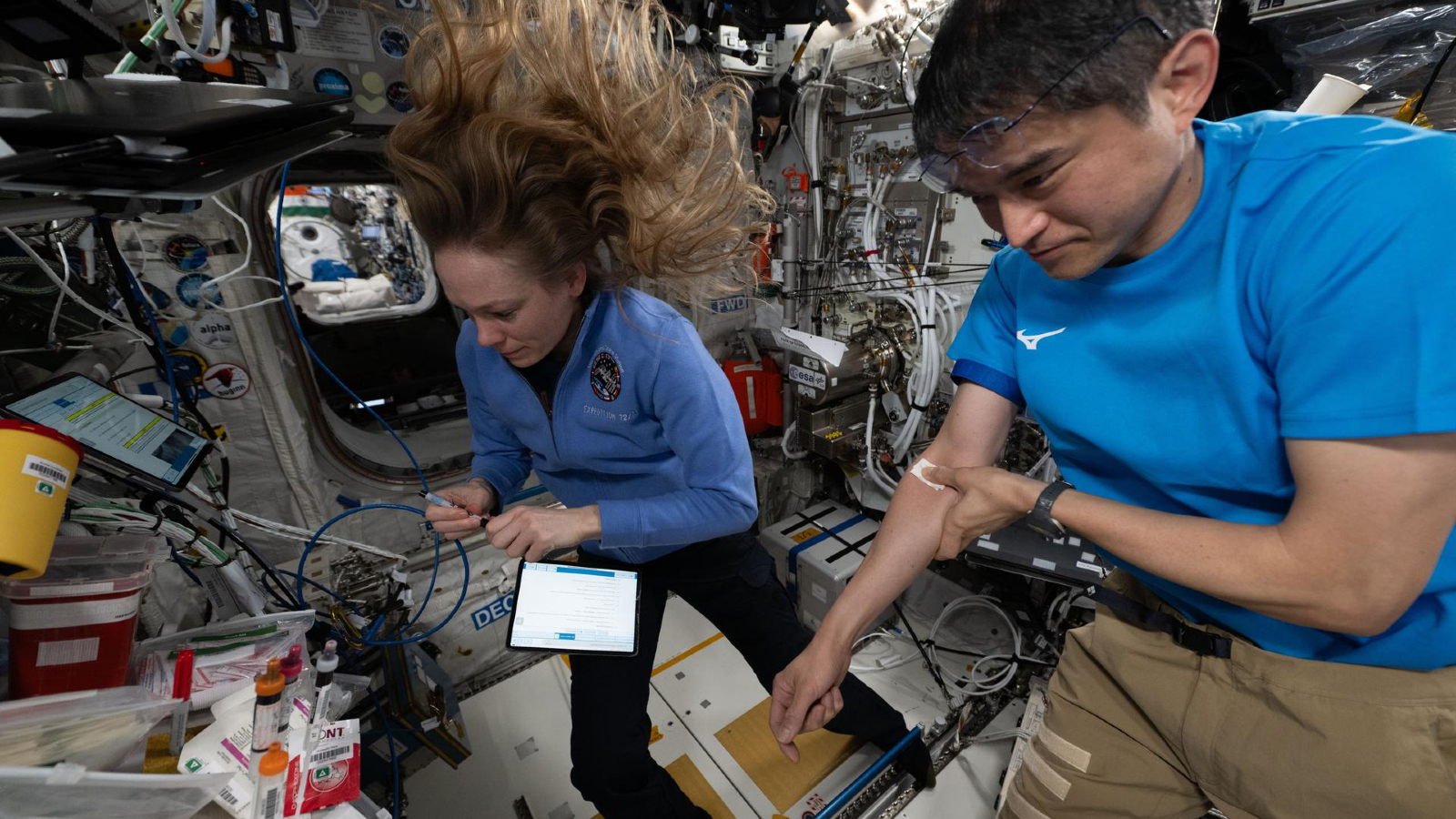
Why is it amazing?
The blood being collected in this image is part of the larger Immunity Assay human research investigation project, which looks at any signs of possible space-caused stress on cells in the body. Microgravity, radiation, confinement and a change in sleep-wake cycles and can exert pressure on cells, driving lower immune systems and making astronauts more susceptible to being sick during or after missions.
By collecting and analyzing blood, experts can look for possible stress markers, immune cell levels and other signs that can see how being in space alters a person’s overall health. This can help doctors adjust regimens in real time to ensure the best results for crew members on the ISS.
Want to learn more?
You can read more about spaceflight health and studies on microgravity’s effects on the human body.
Stay Informed With the Latest & Most Important News
-
 01Two Black Holes Observed Circling Each Other for the First Time
01Two Black Holes Observed Circling Each Other for the First Time -
 02From Polymerization-Enabled Folding and Assembly to Chemical Evolution: Key Processes for Emergence of Functional Polymers in the Origin of Life
02From Polymerization-Enabled Folding and Assembly to Chemical Evolution: Key Processes for Emergence of Functional Polymers in the Origin of Life -
 03Astronomy 101: From the Sun and Moon to Wormholes and Warp Drive, Key Theories, Discoveries, and Facts about the Universe (The Adams 101 Series)
03Astronomy 101: From the Sun and Moon to Wormholes and Warp Drive, Key Theories, Discoveries, and Facts about the Universe (The Adams 101 Series) -
 04True Anomaly hires former York Space executive as chief operating officer
04True Anomaly hires former York Space executive as chief operating officer -
 05Φsat-2 begins science phase for AI Earth images
05Φsat-2 begins science phase for AI Earth images -
 06Hurricane forecasters are losing 3 key satellites ahead of peak storm season − a meteorologist explains why it matters
06Hurricane forecasters are losing 3 key satellites ahead of peak storm season − a meteorologist explains why it matters -
 07Binary star systems are complex astronomical objects − a new AI approach could pin down their properties quickly
07Binary star systems are complex astronomical objects − a new AI approach could pin down their properties quickly












